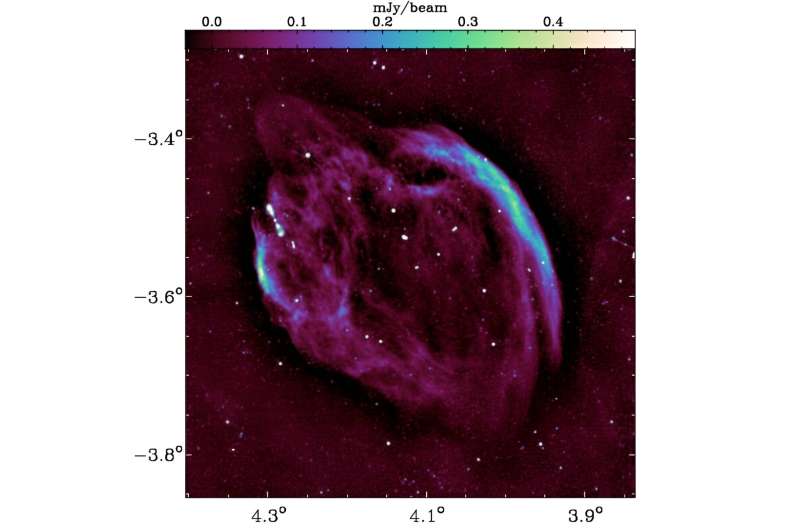Phys.org | 2023 Nov 30
Using the MeerKAT radio telescope, astronomers from the National Radio Astronomy Observatory (NRAO) in Charlottesville, Virginia, and elsewhere have investigated a batch of 36 high latitude supernova remnants. Results of the observations campaign, published Nov. 20 on the pre-print server arXiv, deliver important insights into the properties of these remnants. ... "We present full Stokes MeerKAT L band observations of 36 high latitude supernova remnants," the researchers wrote in the paper. The observations found that two of the 36 observed sources are not SNRs. ...The images show that at least half of investigated SNRs exhibit blowouts or protrusions. Most of the blowouts seem to indicate that something is breaking through the outer edge of the remnant's shell. The astronomers noted that this discovery was only possible due to the unprecedented sensitivity and high fidelity of the MeerKAT images to extended emission, as most of these blowouts show an extremely low radio surface brightness...
more ...
Scientific information:
W. D. Cotton et al. MeerKAT 1.3 GHz Observations of Supernova Remnants, arXiv (2023).
DOI: 10.48550/arXiv.2311.12140
TY4YA Jac


